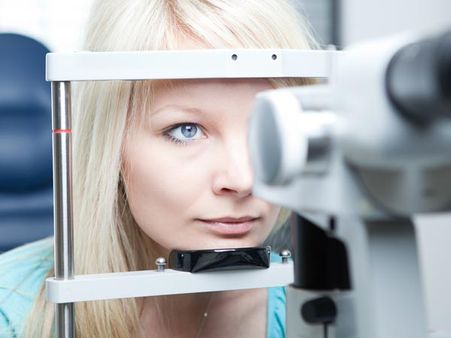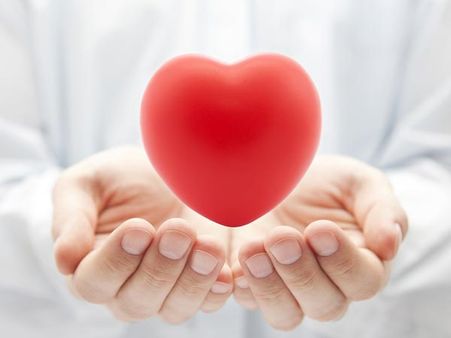Just In
- 23 min ago

- 37 min ago

- 4 hrs ago

- 10 hrs ago

Don't Miss
- Movies
 Chief Detective 1958 Episode 2 OTT Release Date, Time, Platform: When & Where To Watch? What To Expect? DEETS
Chief Detective 1958 Episode 2 OTT Release Date, Time, Platform: When & Where To Watch? What To Expect? DEETS - Sports
 IPL 2024: LSG vs CSK Award Winners, Man of The Match, Post-Match Presentation, Scorecard & Records
IPL 2024: LSG vs CSK Award Winners, Man of The Match, Post-Match Presentation, Scorecard & Records - News
 Chinese President Xi Jinping Orders Biggest Military Reorganisation Since 2015
Chinese President Xi Jinping Orders Biggest Military Reorganisation Since 2015 - Education
 Exam Pressure Does Not Exist; Studying Punctually is Crucial; Says Aditi, the PSEB 2024 Topper
Exam Pressure Does Not Exist; Studying Punctually is Crucial; Says Aditi, the PSEB 2024 Topper - Finance
 Reliance, ONGC, Tata, Adanis: Energy Stocks Didn't Get The Memo Of Bears, Up 12% In 30-Days; 10 Stocks To BUY
Reliance, ONGC, Tata, Adanis: Energy Stocks Didn't Get The Memo Of Bears, Up 12% In 30-Days; 10 Stocks To BUY - Automobiles
 Suzuki Swift Hatchback Scores 4 Star Safety Rating At JNCAP – ADAS, New Engine & More
Suzuki Swift Hatchback Scores 4 Star Safety Rating At JNCAP – ADAS, New Engine & More - Technology
 Dell Introduces AI-Powered Laptops and Mobile Workstations for Enterprises in India
Dell Introduces AI-Powered Laptops and Mobile Workstations for Enterprises in India - Travel
 Journey From Delhi To Ooty: Top Transport Options And Attractions
Journey From Delhi To Ooty: Top Transport Options And Attractions
Early Signs To Indicate Low Blood Pressure
Hypotension, also known as low blood pressure, occurs when there is a poor supply of blood to all the organs of the body. This condition could be dangerous because it can cause stroke, heart attack or kidney failure.
The most-common causes of low blood pressure include reduced volume of blood, heart disease, endocrine problem, allergic reaction, nutritional deficiencies and certain other medications.
The cause of low blood pressure can be determined by blood tests, radiologic studies and cardiac testing.
However, there are many symptoms that can indicate a low blood pressure in the body. It can be fatal if not taken proper care of and can cost the life of a person. Therefore, it is better to be aware of the symptoms.
In this article, we at Boldsky will be listing out some of the symptoms that indicate a low blood pressure in the body. Have a look at these symptoms and treat low BP at the earliest.

Dizziness
Dizziness is the most common symptom of low blood pressure. It is experienced when the position is changed like getting up after sitting for too long, standing for long hours and after having food.

Fainting
The downfall in the blood pressure reduces the blood circulation in the brain and this further leads to the loss of consciousness.

Blurry Vision
Lack of blood flow to the vital organs, the absence of oxygen and nutrients restrict the functioning of the organs. This affects the vision too during low blood pressure.

Irregular Heart Beat:
Heart gets affected the most, when the blood pressure drops. An abnormally fast heart rate could possibly trigger a low blood pressure.

Pale Skin
Pale skin is another common symptom of low blood pressure. This is caused by the lack of blood reaching to the outer layers of the skin. Hence, the skin changes its colour and looks pale and yellow.

Stiff Neck
Neck muscles play a crucial role in controlling blood pressure, heart rate and breathing. When the pressure drops down, it results in stiff muscles.

Sweating
When the blood pressure dips, there is a loss of bodily fluids through sweating. Excessive sweating with low blood pressure could be an indication of a further emergency that needs to be treated early.
-
 healthExclusive: Expert Shares Impact of Heat Waves on Infectious Disease Transmission
healthExclusive: Expert Shares Impact of Heat Waves on Infectious Disease Transmission -
 healthExclusive: Doctor Shares Why Women Should Prioritize Health, Key Resolutions For Well-being And Vitality
healthExclusive: Doctor Shares Why Women Should Prioritize Health, Key Resolutions For Well-being And Vitality -
 healthEverything You Need To Know About Deadly H5N1 Virus That Can Be 100 Times Worse That COVID-19 Pandemic
healthEverything You Need To Know About Deadly H5N1 Virus That Can Be 100 Times Worse That COVID-19 Pandemic -
 astrologyWorld Health Day 2024: Holistic Health Tips For 12 Zodiac Signs As Per Astrology
astrologyWorld Health Day 2024: Holistic Health Tips For 12 Zodiac Signs As Per Astrology -
 healthInstagram Claims Grapes Are Contaminated With Pesticides, Methods To Clean It Properly Before Consuming Them
healthInstagram Claims Grapes Are Contaminated With Pesticides, Methods To Clean It Properly Before Consuming Them -
 healthDutch Woman Opts For Euthanasia In May Not Due To Physical Illness, Know How To Build Mental Resiliance
healthDutch Woman Opts For Euthanasia In May Not Due To Physical Illness, Know How To Build Mental Resiliance -
 health20-Year-Old Man In China Suffers From Delusional Love Disorder, Know What Is Erotomania And Its Signs
health20-Year-Old Man In China Suffers From Delusional Love Disorder, Know What Is Erotomania And Its Signs -
 healthExclusive: On World Autism Day 2024, Let Us Empower Parents With Positive Strategies For Autism Care
healthExclusive: On World Autism Day 2024, Let Us Empower Parents With Positive Strategies For Autism Care -
 health10 Year Old Girl Dies After Eating Cake, How To Identify A Bad Cake Online, What Health Risks It Can Pose
health10 Year Old Girl Dies After Eating Cake, How To Identify A Bad Cake Online, What Health Risks It Can Pose -
 healthLove To Cuddle? These Are The 10 Amazing Health Benefits Of Cuddling Which Will Make You Want It More
healthLove To Cuddle? These Are The 10 Amazing Health Benefits Of Cuddling Which Will Make You Want It More -
 astrologyApril 2024 Health Horoscope: Know How This Month Will Affect Zodiac Signs In Terms Of Wellness
astrologyApril 2024 Health Horoscope: Know How This Month Will Affect Zodiac Signs In Terms Of Wellness -
 healthWhat Is iPhone Finger? Here's Why You Need To Worry About Its Negative Effects
healthWhat Is iPhone Finger? Here's Why You Need To Worry About Its Negative Effects


 Click it and Unblock the Notifications
Click it and Unblock the Notifications



